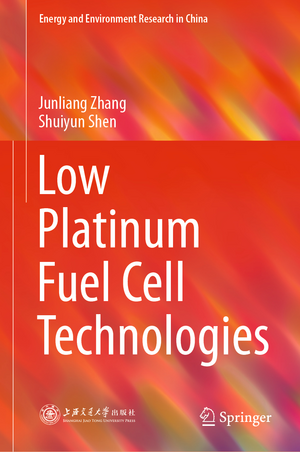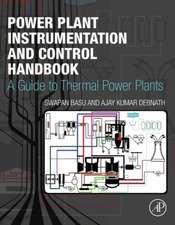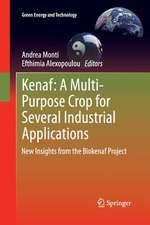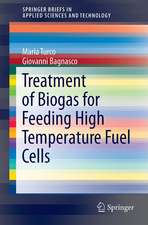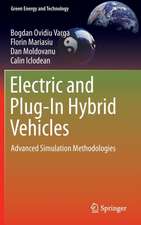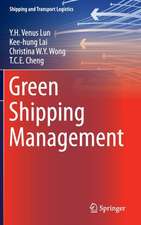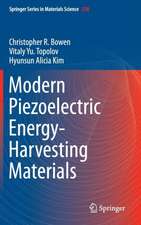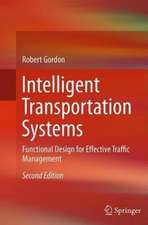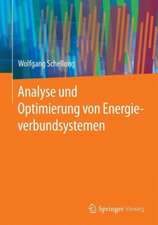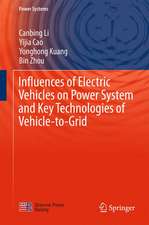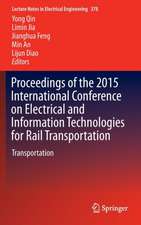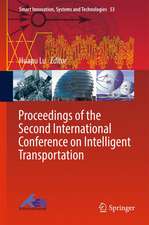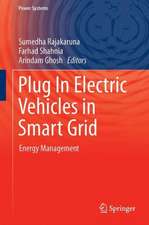Low Platinum Fuel Cell Technologies: Energy and Environment Research in China
Autor Junliang Zhang, Shuiyun Shenen Limba Engleză Hardback – 24 sep 2020
While energy and environmental issues are becoming the two main subjects in global sustainable development, the proton exchange membrane fuel cell (PEMFC), a clean and efficient new energy technology, has attracted more and more attention in recent years The major hurdle for more extensive applications of the PEMFC, especially for the automotive sector, is the high platinum loading requirement. Readers will gain a comprehensive understanding of the fundamentals and methods of low platinum PEMFC. This book is intended for researchers, engineers and graduate students in the fields of new energy technology, the fuel cell vehicle industry and fuel cell design.
Preț: 643.84 lei
Preț vechi: 757.46 lei
-15% Nou
Puncte Express: 966
Preț estimativ în valută:
123.21€ • 127.91$ • 102.74£
123.21€ • 127.91$ • 102.74£
Carte tipărită la comandă
Livrare economică 24 martie-07 aprilie
Preluare comenzi: 021 569.72.76
Specificații
ISBN-13: 9783662560686
ISBN-10: 3662560682
Pagini: 250
Ilustrații: XIV, 223 p. 169 illus., 145 illus. in color.
Dimensiuni: 155 x 235 x 22 mm
Greutate: 0.51 kg
Ediția:1st ed. 2021
Editura: Springer Berlin, Heidelberg
Colecția Springer
Seria Energy and Environment Research in China
Locul publicării:Berlin, Heidelberg, Germany
ISBN-10: 3662560682
Pagini: 250
Ilustrații: XIV, 223 p. 169 illus., 145 illus. in color.
Dimensiuni: 155 x 235 x 22 mm
Greutate: 0.51 kg
Ediția:1st ed. 2021
Editura: Springer Berlin, Heidelberg
Colecția Springer
Seria Energy and Environment Research in China
Locul publicării:Berlin, Heidelberg, Germany
Cuprins
Thermodynamics of fuel cells.- Electrode kinetics of PEM fuel cells.- Carbon dispersed platinum nanoparticle electrocatalyst.- Carbon supported platinum alloy electrocatalysts.- Platinum monolayer electrocatalysts.- Carbon dispersed Crystalline platinum alloy electrocatalysts.- MEA fabrication for low platinum electrocatalysts.- Durability of cathode electrocatalysts under potential cycling.- Durability of proton exchange membrane.
Notă biografică
Junliang Zhang is currently Director and Professor at the Institute of Fuel Cells, School of Mechanical Engineering, Shanghai Jiao Tong University, China. He received his B.E. and M.E. degrees from Shanghai Jiao Tong University in 1994 and 1997 and Ph.D. degree in Mechanical Engineering from State University of New York at Stony Brook in 2005, respectively.
Prof. Zhang's research interests include electrocatalysis, interfacial electrochemistry, nanomaterials, fuel cells, batteries, supercapacitors, and heat and mass transfer in electrochemical energy system.
Shuiyun Shen is currently Associate Professor at at the Institute of Fuel Cells, School of Mechanical Engineering, Shanghai Jiao Tong University, China. She received her B.E. and M.E. degrees from Harbin Institute of Technology in 2006 and 2008, and Ph.D. degree in Mechanical Engineering from Hong Kong University of Science and Technology in 2012, respectively.
Prof. Shen's research interests include electrocatalysis, nanomaterials, proton exchange membrane fuel cells, Li-ion batteries and Li-Air batteries.
Textul de pe ultima copertă
This book introduces readers to the fundamental physics and chemistry of the proton exchange membrane fuel cell (PEMFC), followed by discussions on recent advances in low platinum electrocatalysis and related catalyst development for PEMFC (the book’s primary focus), methods of membrane electrode assembly (MEA) fabrication for low platinum catalysts, and durability issues in connection with MEA.
While energy and environmental issues are becoming the two main subjects in global sustainable development, the proton exchange membrane fuel cell (PEMFC), a clean and efficient new energy technology, has attracted more and more attention in recent years The major hurdle for more extensive applications of the PEMFC, especially for the automotive sector, is the high platinum loading requirement. Readers will gain a comprehensive understanding of the fundamentals and methods of low platinum PEMFC. This book is intended for researchers, engineers and graduate students in the fields of new energy technology, the fuel cell vehicle industry and fuel cell design.
Junliang Zhang is a professor at the Institute of Fuel Cells, School of Mechanical Engineering, Shanghai Jiao Tong University, Shanghai.
While energy and environmental issues are becoming the two main subjects in global sustainable development, the proton exchange membrane fuel cell (PEMFC), a clean and efficient new energy technology, has attracted more and more attention in recent years The major hurdle for more extensive applications of the PEMFC, especially for the automotive sector, is the high platinum loading requirement. Readers will gain a comprehensive understanding of the fundamentals and methods of low platinum PEMFC. This book is intended for researchers, engineers and graduate students in the fields of new energy technology, the fuel cell vehicle industry and fuel cell design.
Junliang Zhang is a professor at the Institute of Fuel Cells, School of Mechanical Engineering, Shanghai Jiao Tong University, Shanghai.
Caracteristici
Offers a comprehensive introduction to the fundamental physics and chemistry of the proton exchange membrane fuel cell (PEMFC) Presents discussions on key issues concerning the PEMFC and approaches to resolving them Covers recent developments in low platinum fuel cell technologies, from material design to applications
